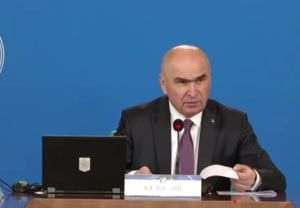Some of the employees in the electricity distribution and supply systems have or will receive salary raises this year. The good news only applies to employees of the State-run companies that concluded last year with a profit. Adolf Muresan, President of the Univers Union Federation, explained for BURSA how trade unions in State-run and private companies had obtained such raises: "As early as the beginning of the year, we proposed that the employees with the smallest salaries should be protected, especially considering the crisis. Thus, we requested all electricity distribution and supply companies to increase salaries by a flat amount of 100 lei."
After intense negotiations, Electrica SA (Muntenia North, Transylvania South and Transylvania North), agreed with the proposed salary raise. So did Enel, which controls the Electrica divisions in Banat, Dobruja and Muntenia South. Muresan further told BURSA that, although negotiations had been extremely tight, the unions had managed to come to an agreement also with CEZ, which controls the former Electrica Oltenia: "They proposed another model for adjusting salaries, a motivational model based on performance. We have come to an agreement as this system allows 80 per cent of the CEZ employees to have their salaries increased by up to 30-40 per cent." The trade unions are monitoring the outsourcing of certain services by CEZ in order to make sure that the several hundreds of affected employees are taken over by other companies under the same conditions as those currently stipulated in the framework employment contract.
A raise has also been secured for the employees of Nuclearelectrica SA, which has its own salary indexing system. Univers has also managed to close an ongoing conflict with Transelectrica, the operator of the Romanian power grid.
Adolf Muresan further communicated that intense negotiations were taking place with the management of E.ON, which controlled the majority stake in the former Electrica Moldova. "This is not just a matter of salaries, but also a matter of layoffs. We understand the need to optimize costs, especially during an economic crisis. However, such layoffs should have been first discussed with the trade unions, before any decision by the Board of Directors." According to the union leader, the protests organised in October led to further negotiations on layoffs and voluntary layoffs.
The situation is also not clear at hydro-power production company Hidroelectrica. According to Muresan, changes in management have delayed negotiations on salaries and the framework employment contract. Moreover, some employees have successfully sued the company for certain claims, which the company now needs to settle. The Univers Federation is currently collecting endorsement signatures for starting a labour conflict at Hidroelectrica.


























































